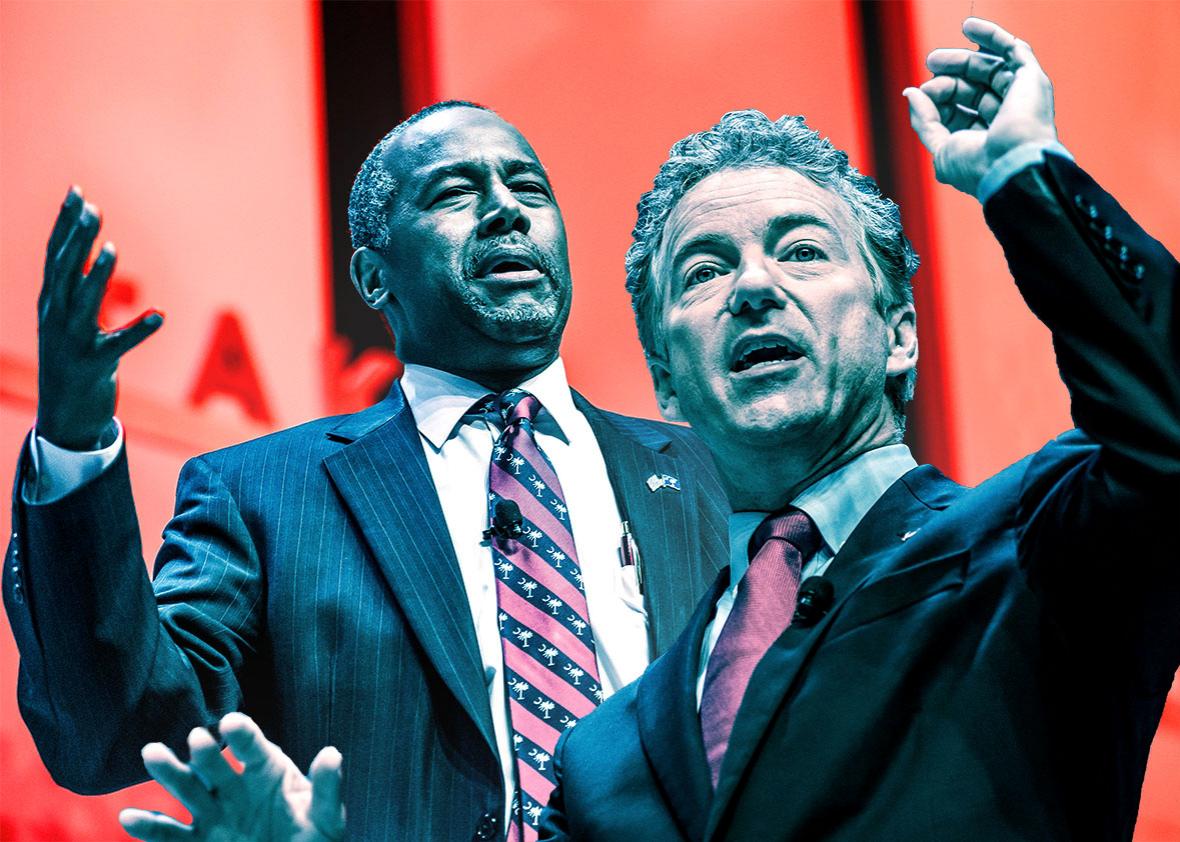Now Donald Trump is a vaccine expert. During last week’s Republican debate, he told the story of a child who got sick and became autistic after receiving a vaccine. Trump failed to provide any evidence that autism is connected to vaccines. That’s because there isn’t any evidence, because this concern has already led to many millions of dollars and multiple studies around the world over the past decade that have shown positively no discernable link between thimerosal-containing vaccines, the Measles Mumps Rubella vaccine, or any other vaccine and autism.
Instead, we have seen a resurgence of measles here in the United States, with the largest outbreak in two decades last winter. Measles is a highly contagious disease that infects 90 percent of the unvaccinated people who come in contact with it. Of course measles outbreaks tend to occur in communities with the lowest vaccination rates or in an area with travelers from around the world who bring their microbes with them, like Disneyland. With celebrities like Jenny McCarthy spouting anti-vaccine pseudoscience, California has had the worst vaccine compliance rate in the country. More than 17,000 children whose parents took philosophical exemptions to vaccines were enrolled in kindergarten in California alone in 2013–14. The state, to its credit, recognized this risk and recently restricted its vaccination exemption rules.
It is no coincidence California and other states with high rates of vaccine resistance also suffer from increasing outbreaks of whooping cough, also known as pertussis, another highly contagious vaccine-preventable disease. Last year more than 32,000 cases of pertussis were reported to the Centers for Disease Control and Prevention, with close to one-third of these cases in California.
I hate to imagine what will happen with vaccination rates now that Donald Trump has become more than just the latest celebrity to fan the flames of vaccine fear. As a politician running for our highest office—and leading in Republican polls and attracting unprecedented media attention while doing so—his message will scare or confuse countless more parents into leaving their kids vulnerable.
The heroes of vaccination successes are the anonymous millions who band together to protect the local and national community. Compare this to the know-it-all, polarizing attitude of blustery Trump. Consider that vaccines became the greatest public health measure in the 20th century (wiping out smallpox, eliminating polio in most of the world, and making a huge decrease in measles deaths) by mass cooperation. Herd immunity creates a barrier to disease spread which protects our most vulnerable: the very young or old or people with compromised immune systems.
Ben Carson, a renowned neurosurgeon and the presidential candidate standing to the right of Trump on the stage, attempted to correct Trump’s assertion, explaining that there is well-documented proof that autism is not associated with vaccinations.
Unfortunately, Carson went on to promote another fear-driven myth about vaccines. He added that “we are probably giving way too many in too short a period of time.” There is not a shred of scientific evidence to back this up. Rand Paul, an ophthalmologist and another candidate on the stage, echoed his fellow doctor’s concerns about bunching vaccines.
Both of these physicians have had great accomplishments in the medical world, Carson as a pioneer neurosurgeon and Paul as a successful eye surgeon. As a fellow physician it was unsettling to me to see them speculating wildly outside their areas of expertise, especially in the wake of Trump’s dangerous comments. They should have known better.
Scientists continually reassess whether a contagious disease is enough of a threat to prompt a national vaccination campaign. Vaccines and the way they are scheduled and bunched are rigorously tested for safety and efficacy. In fact, immunizations are some of the most-tested medical interventions in use today.
There is also simply no evidence that too many vaccines over-stimulate the immune system, a common fear among parents. In fact, young children encounter thousands of far more powerful immune-stimulating microbes in between vaccinations than during them.
Vaccinating as much of the herd as possible is the best science we have. Fully immunizing our children before they enter the Petri dishes known as kindergarten is the best way we have of protecting them. A careful schedule is necessary to provide a lasting immunity.
Don’t get me wrong; vaccines can have side effects, and the potential for doing harm should always be considered when any cost benefit decision on health is made. In the future, a more sophisticated genetics-driven analysis will be possible on a patient-by-patient basis to determine who benefits the most and who is most at risk for the extremely rare serious complication. But in the meantime, for childhood vaccines, the cost-benefit analysis is clear, and children should be immunized on schedule. Fear and hype never lead to sound medical decisions, and we and our potential leaders should not spend our precious scientific resources constantly assailing our greatest inventions.
It takes real leadership to follow the right research path and not pander to outdated fears.
